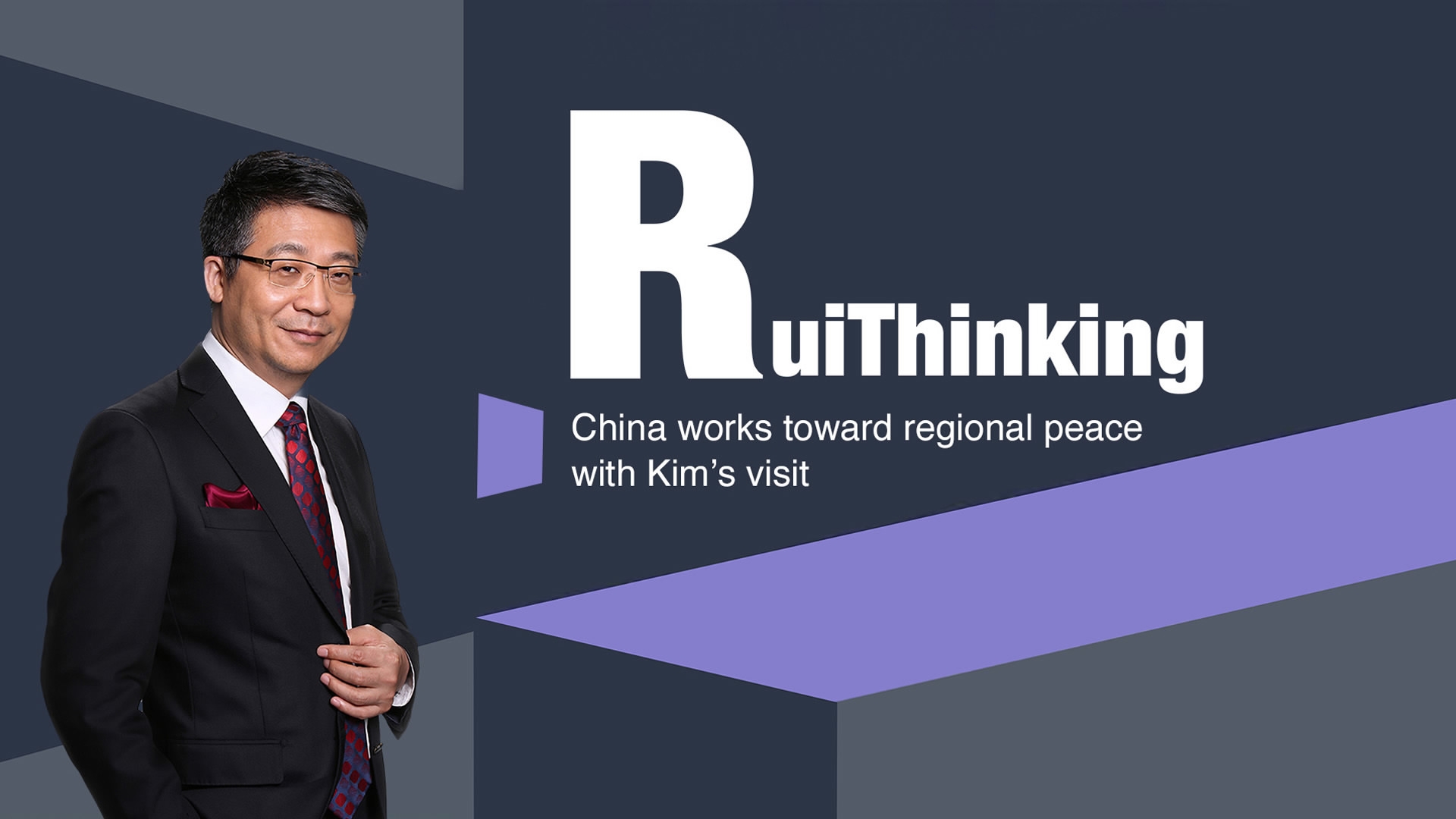
Opinions
22:57, 31-Mar-2018
RuiThinking: China works toward regional peace with Kim’s visit
By CGTN's Yang Rui

In a surprise unofficial visit to Beijing, Kim Jong Un, leader of the Democratic People's Republic of Korea (DPRK), promised that his country would honor the will of his grandfather and get denuclearized. He made the promise during a summit meeting with Chinese President Xi Jinping.
I was impressed by four points. First, China comes back to the center stage of this peace process in Northeast Asia after the six-party talks came to a halt. China has exhausted all means under the mandate of the UN Security Council to bring all parties concerned to the table instead of talking past each other. We stand for diplomacy rather than gunboat policy.
Second, traditional friendship is being resumed, including party-to-party ties, to restore our leverage on the Korean Peninsula and to promote predictability when President Trump is viewed as a bull in a China shop. And, above all, China has to navigate the course of denuclearization proactively to protect our core security stakes when super hawks like John Bolton have been installed in the Trump administration. We cannot be held hostage or held at the gunpoint by neocons.
Third, the trade bluff and Taiwan Travel Act look like a haunting specter of the Cold War, if not a trade-off on our principle concerning Taiwan. China might show signs of flexibility on other issues except for Taiwan. We love peace but refuse to sacrifice sovereignty. Taiwan, under the pro-secession Democratic Progressive Party (DPP) and Tsai Ing-wen, refuse to accept the one-China principle or the 1992 consensus. There is no political groundwork for any serious dialogue across the Taiwan Strait. Peaceful reunification or non-peaceful means are options on the table depending on how cautiously the US government complies with the legally binding documents between the two governments on Taiwan.
I personally regard the fruitful and friendly summit meeting with the DPRK as an indication of our huge regional influence in shaping peace and stability if not the security outlook in East Asia.
Last, US-China co-evolution instead of a zero sum game seems to be the only convincing prospect for the two biggest economies. But the US was the only country that vetoed China’s recent initiative for co-prosperity at a UN meeting. Over 40 countries have voted to support our peace-making proposal. Policy-makers in the US have said multiple times that they will never allow its strategic competitor to gain digital primacy with any means short of a war to stop our pursuit of digital leadership especially in an area of artificial intelligence.
In conclusion, I look at the close partnership between China and the DPRK as our leverage to guarantee China’s peaceful rise. An embattled Donald Trump who is mired in a sex scandal at home might create more external threats to divert public attention and to win the mid-term elections. In my humble opinion, China will do what it can to help block Trump’s self-fulfilling prophecy. This is a big game. But rules have to be fair.
I am Yang Rui. See you next time. Bye for now.
(Yang Rui is the anchor of CGTN’s Dialogue.)

SITEMAP
Copyright © 2018 CGTN. Beijing ICP prepared NO.16065310-3
Copyright © 2018 CGTN. Beijing ICP prepared NO.16065310-3